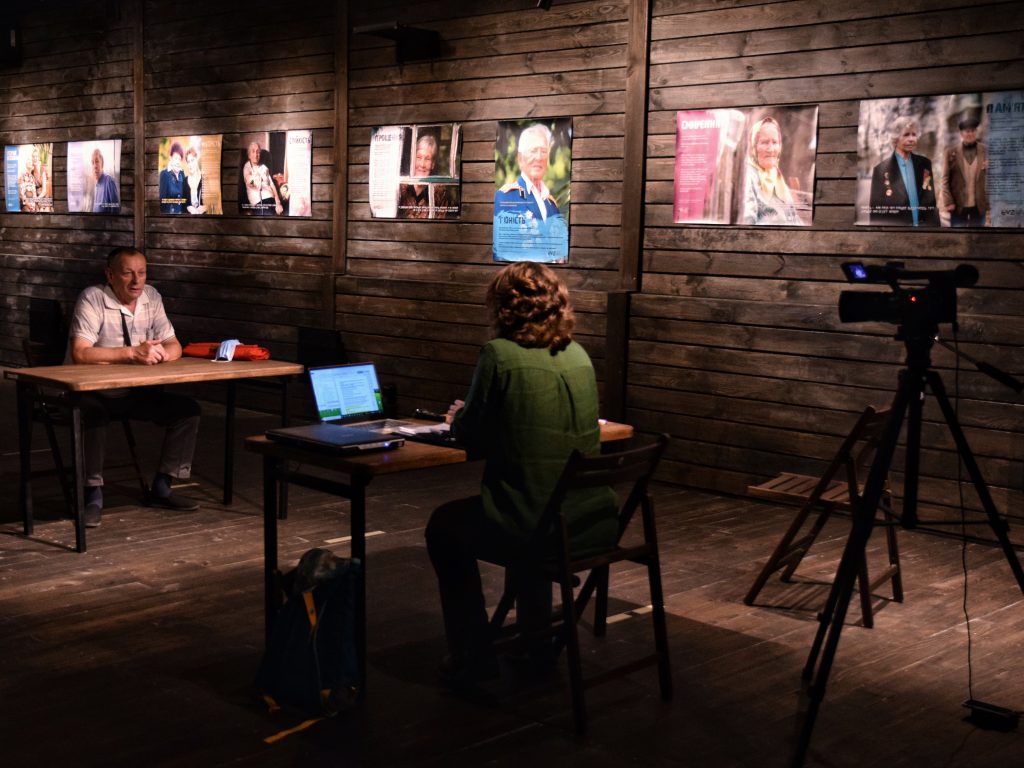Ivan Kardash
Ivan Kardash was born on 07 August 1947, in Krotoshyn (then Vynnyky district), Lviv oblast to a family of Agafiya and Oleksiy Kardash. His parents were displaced from the Polish People’s Republic during population exchange between two adjacent republics. In 10 years, another son was born to the family. Hennadiy was born on 6 January 1957.
Repressions
Oleksiy Kardash was arrested and convicted as an “OUN-UPA supporter”. He served his sentence in a camp in Magadan region, Russian Soviet Federative Socialist Republic. After that his relatives – his wife, son and mother-in-law – were transported in April 1950 as the “bandits’ supporter’s family”. The transportation was swift. “They came, like my mother said, and didn’t even let us pack up… They took some stock of some property, packed it and took it away… to the railway station, and that was it”.
Transportation
Three-year-old Ivan remembered almost nothing about the road to deportation: “My mom told me. I remembered it a bit… For instance, the toilet… When we stopped somewhere, I went to the toilet…we asked to…we were with soldiers… The soldiers guarded us, well, convoyed, so when we went to the toilet, a soldier would go out and stand by your side… He would never step aside, but would stand near…that’s how it was… My mom told me that they had no shame, nothing. Well… what more can I say… We were travelling like this, in those wagons, cattle trucks or what are they called…they transported us in them…”.
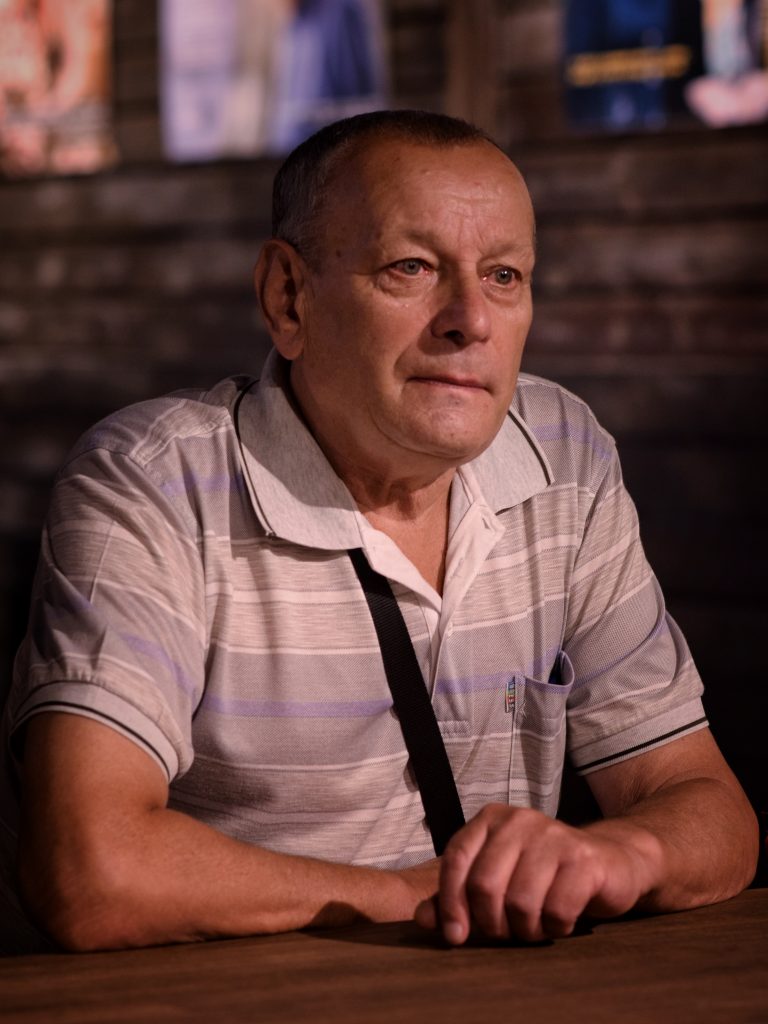
At the special settlement
The family was transported to Sulzat village, Molchanov district, Tomsk region, Russian Soviet Federative Socialist Republic. In addition to barracks meant for the deportees in the special settlement, there was a hospital, a shop, a pond and a school on the village edge.
Later special settlers started planting vegetables on the land plots: cucumbers, potatoes and carrots. It saved them from famine. “I remember being at home the entire day, I was hungry, but there was nothing to eat. I went out and picked up and ate some carrots from the neighbours’ garden and they saw it. I came back home and they told my mother I took those carrots… and my mom beat me and that was it… for doing this…”. Only bare necessities could be bought in the shop, and even those were scarce: “There was everything except fruit… When apples were brought in, it was a nightmare… they were in short supply… Well, people were queuing for hours… When watermelons were brought, it was a disaster too… There was nothing like that… there was usual food… But there was hardly any fruit”.
Ivan’s mother was felling trees in taiga together with other adults.
“My mom went to work, to the woods, to taiga. There was a huge truck… She got up early in the morning and came back late at night. I was waiting up and didn’t go to sleep. For I was hoping she might bring me something”. Men were cutting down trees and women were limbers. They cleared trunks off the branches. It was a physically demanding work, and they did it standing in the snow up to their waist.
Special settlers’ children spent their free time in the woods. They were picking mushrooms, pine cones and berries in taiga, building tents and catching fish. Pine nuts were used instead of sunflower seeds: “We went out and picked up pine nuts… Then we peeled them, and they would open nicely if thrown in the fire. There were bags of those pine nuts, and they eat them instead of sunflower seeds in winter”.
Deportees kept domestic animals and poultry. Once little Ivan brought home chicken he found in the street: “I was passing by and saw the birds running around. Well… A child wanted to catch them; they were so pretty. I caught them and brought them home, and my granny asked: “Where did you get them?” I said: “I caught them in the woods” … “How is it, in the woods? You’re lying. Tell me where did you get them?!” “In the woods!” But they were chicken. She beat me hard…like this…I took them back to where I had caught them. I remember it well. How could I have known what it was? I saw it for the first time and I thought I would tell a lie that I caught it in the woods”. The Kardashs eventually got their own homestead too: “I remember we had a cow. We bought a cow somewhere. Maybe there was a pig too, I don’t know, but I know that we had cows for sure. Ukrainian people are used to farming, they found something… and they managed to work it”.
Ivan went to school in the special settlement. Winter ride using dogs in sledges was among the brightest memories: “A student was coming to school riding dogs, and we sometimes went with him, he would give us a ride. Or we were riding the dogs during the break”. Little Ivan was willing to study: “I wanted to study, because I… There weren’t many children, one grade was three or four pupils. Sometimes there were three of us and sometimes four. But I was eager to study, I knew all the rules and learned them…I read a lot, I loved reading, and it came out like that that I still read all the time. So, I was zealous, for not all the pupils were. Still there was no ABC book, so I had to…”.
In 1956 Oleksiy Kardash finished serving his sentence and came from Magadan to the special settlement to his family: “It was at night. We were home, a neighbour came in and I remember her calling my mom. She said: “Your husband returned”. So, he came in. I remember him carrying a wooden suitcase, an old-style wooden one, it was made of plywood or something similar. Well… He was scruffy. I still remember him taking me in his arms and giving me a hug, and his beard was itchy, and I didn’t remember him. I shied, and it was so itchy. But he brought… He opened his bag and brought some chocolates, a bar this big…”. As of that moment Ivan hardly remembered his dad. In January 1957 son Hennadiy was born to Kardash family.
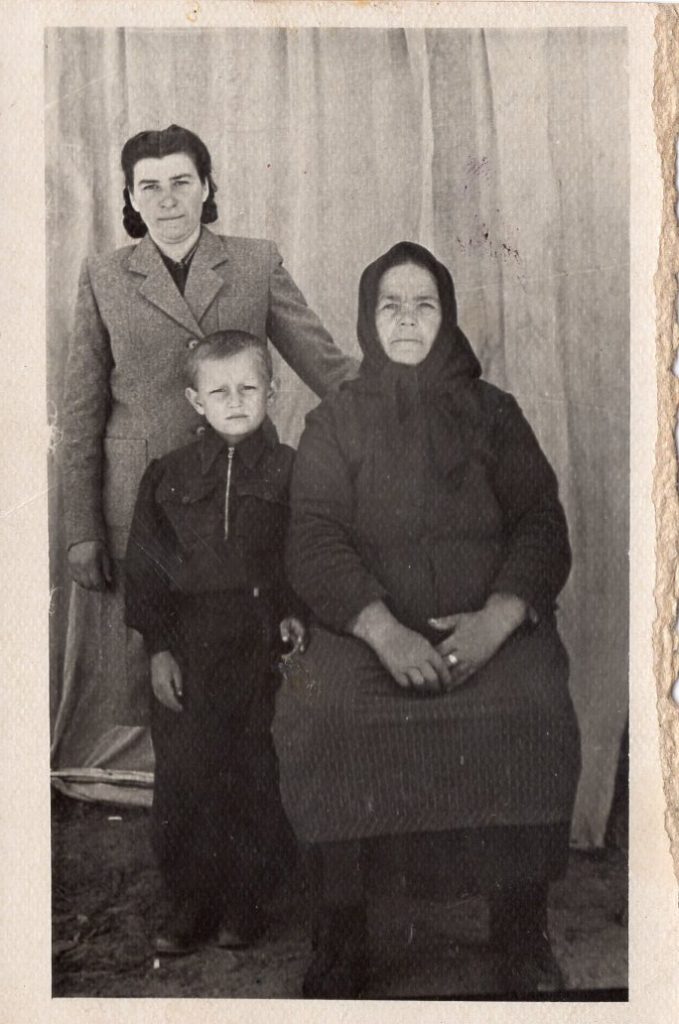
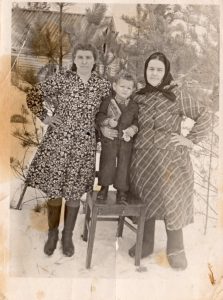
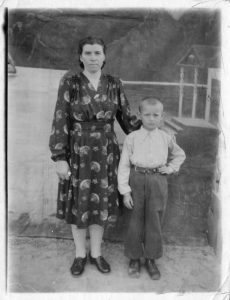
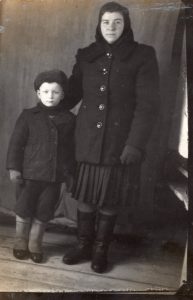
Coming home
The family did not return to Ukraine until early 1957. They couldn’t get registered in Lviv, as they were ex-deportees. They were told they could live in places 100 km away from Lviv. Soon their family moved to Zaporizhzhia oblast as a part of organisational recruitment. They were placed in Veselyi state-owned farm in Vasylkiv district. Mother worked at pig barn and father was a groom and then worked in the community club. Ivan graduated from a secondary school in Zaporizhzhia oblast. Then he moved to Lviv and got into vocational school and then to college. In his final college year, he took a gap year and recruited to build BAM. He returned to Lviv in a year and was drafted to the army in 1966. In 1967, while the young man was serving in the army, his father died of silicosis at the age of 40. Ivan served in Sevastopol, in the navy. Their ship travelled to Bulgaria, Turkey and Syria. The vessel made a trip around Europe: “I don’t regret I saw the world like this, in the service. I’m not sorry I ended up there… I served four years, but I know I managed to see something”.
Later the Kardashs requested the authorities to return their confiscated property. However, there was no description of the seized property. The state paid a compensation, but it was miserly. “They gave us enough money to buy one raincoat… That was it… Nothing more…There was a building, horses, cows, carriages and lots of other things… There was a shed… And this… What did they give us? That was it – no house, nothing whatsoever. I think they destroyed our lives”.
